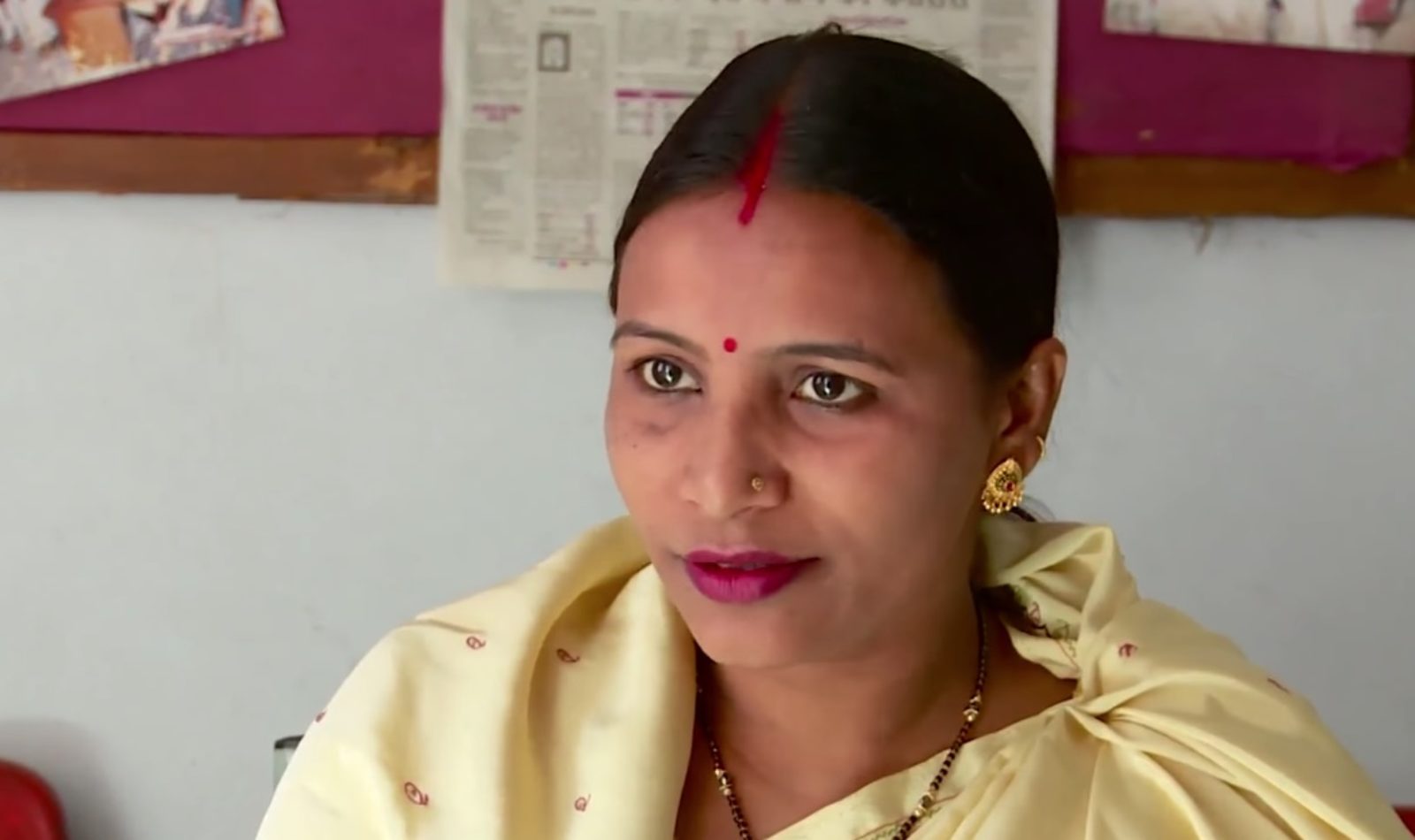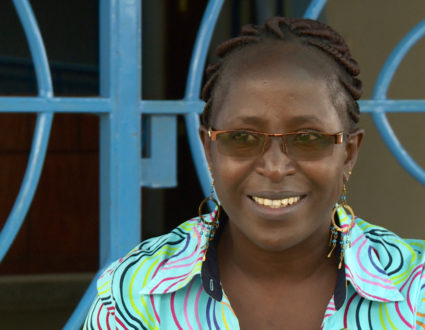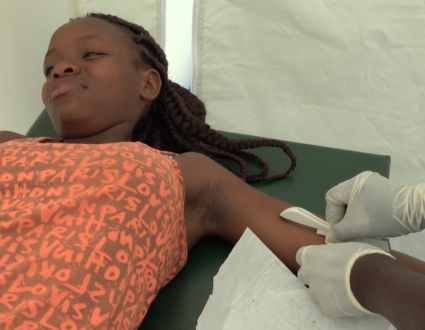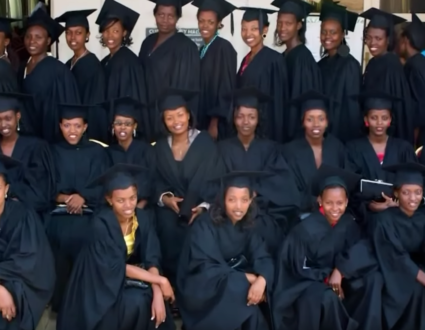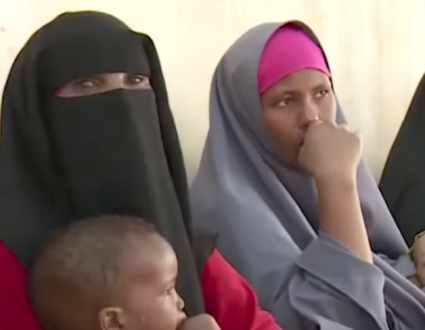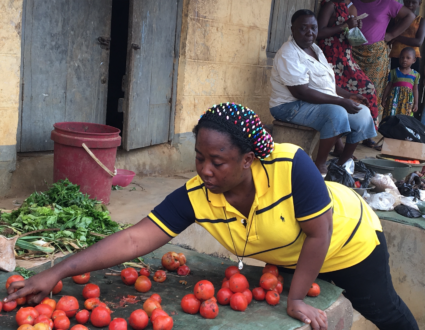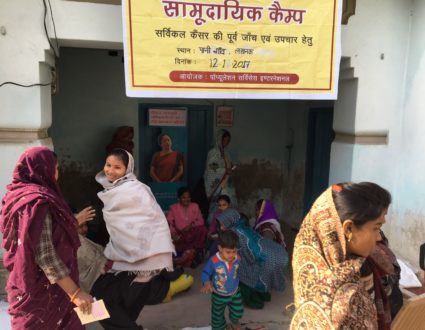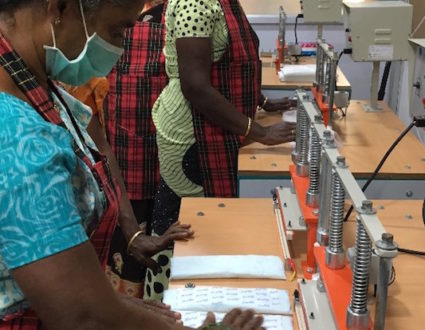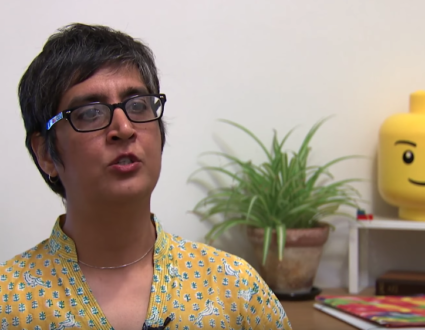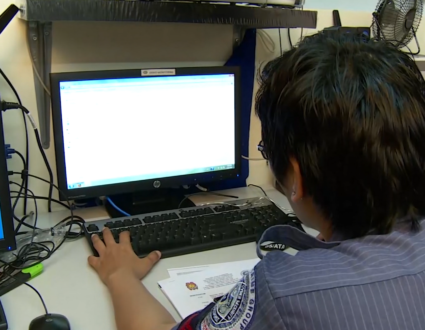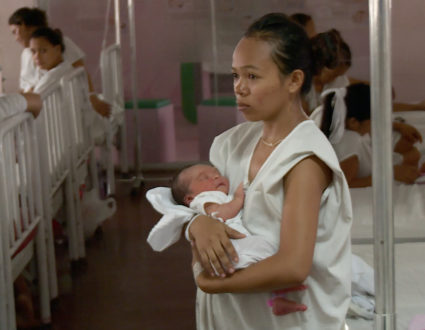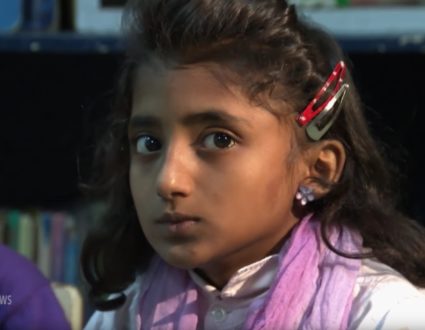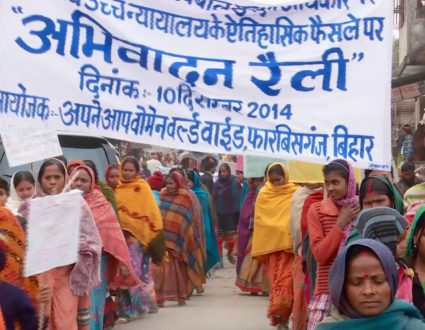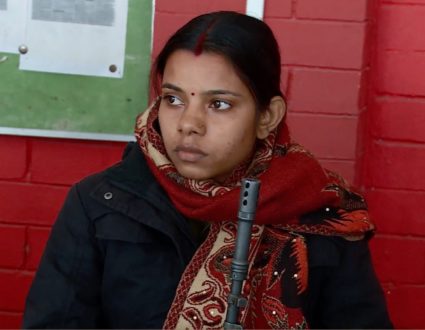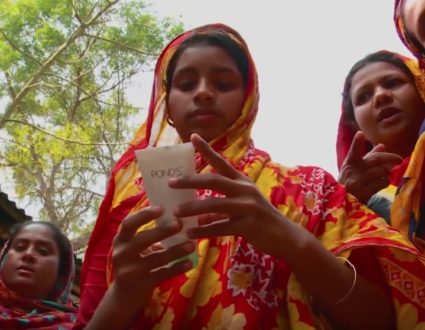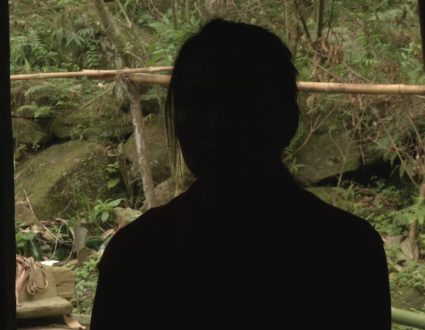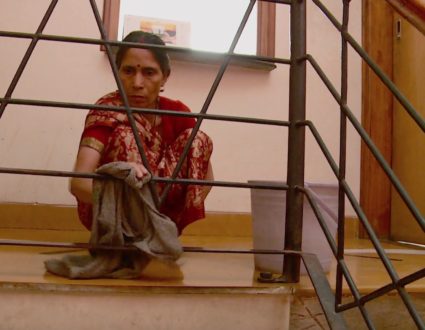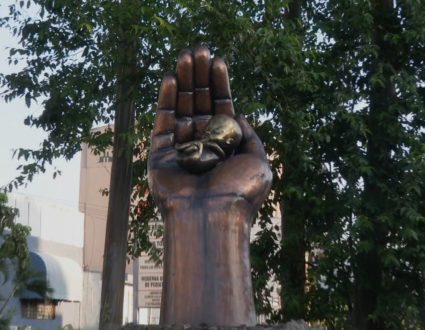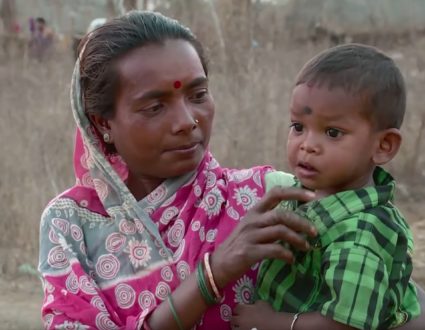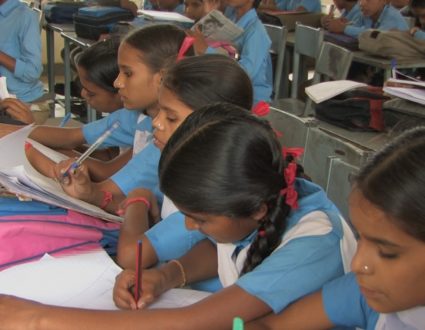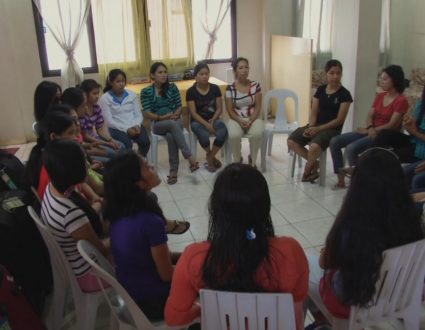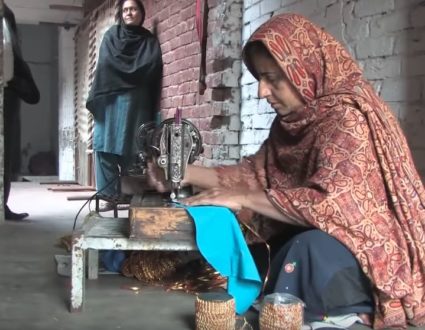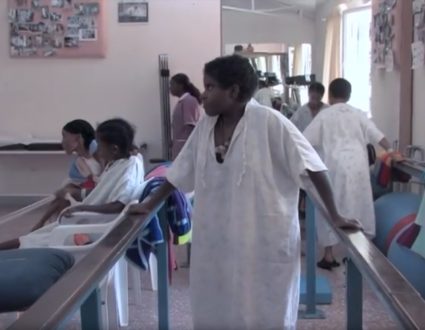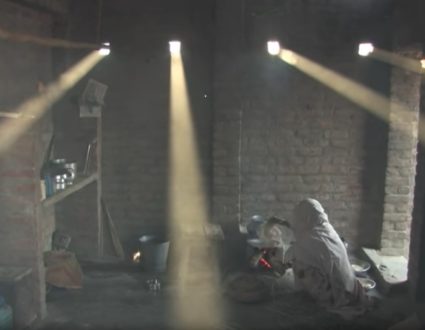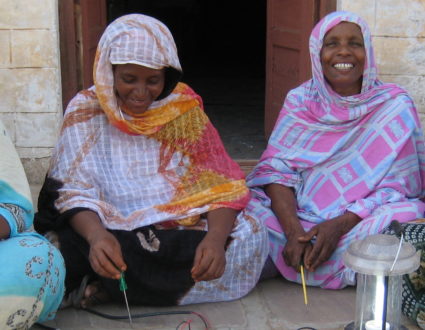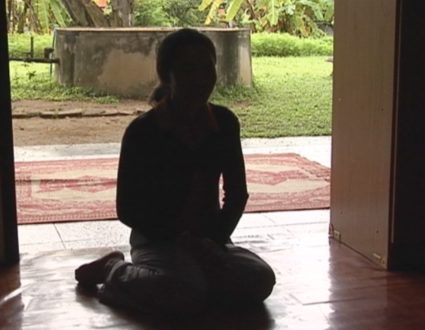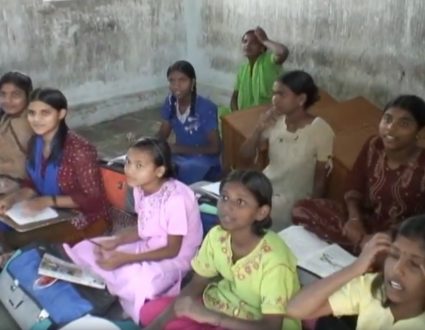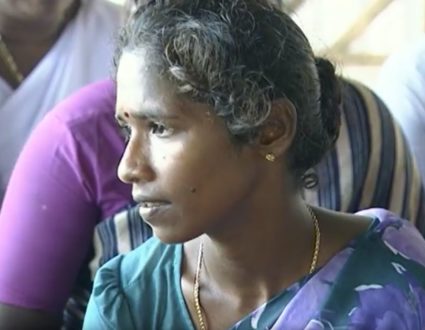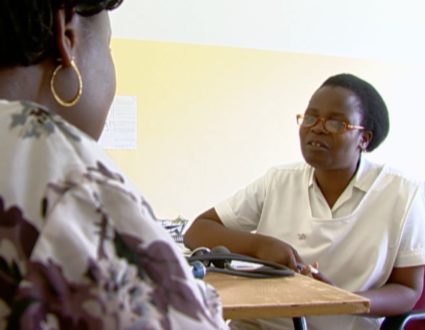JUDY WOODRUFF: Now: an awakening in India to the problem of violence against women.
Special correspondent Fred de Sam Lazaro has a report, part of our “Agents for Change” series.
And a warning: Some scenes in his story are disturbing.
WOMAN: Outrage against a barbaric crime is only growing.
FRED DE SAM LAZARO: It used to be socially taboo to talk about rape or sexual assault in India. Now it’s in the news almost every day. And advocates who have tried to bring attention to these issues say it might just bring a shift in attitudes after decades of indifference.
RANJANA KUMARI, Center for Social Research: People really, really are very angry.
FRED DE SAM LAZARO: Ranjana Kumari, who runs the Delhi-based Center for Social Research, says that anger welled over after last December’s gang rape in Delhi of a 23-year-old medical student who died from her injuries. The incident dominated global headlines and touched a nerve across this vast country.
RANJANA KUMARI: We saw so much of brutality, six men brutalizing this girl beyond anybody’s imagination. And here is this system which didn’t respond.
FRED DE SAM LAZARO: National crime records show a woman is raped in India every 20 minutes. Kumari says perhaps one in 10 cases of rape is actually reported, with minimal consequence.
RANJANA KUMARI: Look, there are 95,000 cases of rape are pending at different levels of the court system. We know that seven to nine years it takes to get a conviction. Three out of four perpetrators of crime just go scot-free.
FRED DE SAM LAZARO: The criminal justice system is beholden to corrupt political leaders, says Kiran Bedi. She was one of the country’s top police officials before retiring three years ago.
KIRAN BEDI, Retired Police Official: If you are a nobody, then the law is heavy on you. But if you’re somebody, then the law is very alert, very selective on you.
FRED DE SAM LAZARO: Not only have politicians been indifferent toward violence against women, she says. Dozens of themselves accused of crimes and yet unpunished.
KIRAN BEDI: Yet they go on as being members of the sitting members of the legislative assembly and the parliament. They’re sitting members. It’s a clear violation of their oath.
FRED DE SAM LAZARO: And some of them are actually accused and charged with sexual crimes against women?
KIRAN BEDI: As I said, yes, of course.
FRED DE SAM LAZARO: Uma Vangal says the cultural acceptance of sexual violence against women is reinforced in India’s influential cinema. Vangal is a professor of film in the Southern city of Chennai. She showed me one scene from a movie in the regional Tamil language. It was an elaborately choreographed rape.
UMA VANGAL, L.V. Prasad Film Institute: She’s pleading, says, OK, I said something, I humiliated you in public, but can we forget about it?
FRED DE SAM LAZARO: The film’s hero, as male leads are called, has been spurned by his prospective bride. The marriage had been arranged by the families, according to local tradition.
UMA VANGAL: Look at this. Look at the insensitive way it’s been handled. You don’t know whether to laugh or whether take it seriously. But the audience obviously accepted the argument that it’s all right to rape a woman if you want to prove your masculinity.
FRED DE SAM LAZARO: In fact, this film was such a hit, she says, it now is being remade in Bollywood, whose Hindi-speaking audience is many times larger.
Rape may be the extreme, but many scenes mirror male behavior that is commonplace on the street.
UMA VANGAL: Catcalls, comments, sometimes rude gestures, sometimes actually feeling up, everything. I think any woman who ventures out is subject to some kind of harassment.
FRED DE SAM LAZARO: Harassment.
UMA VANGAL: Though they don’t perceive it as harassment. The men don’t see it as harassment. They see it as harmless fun.
FRED DE SAM LAZARO: Either that or, invariably, she says, there’s a hero in the wings to do right by the wrong woman.
UMA VANGAL: The mainstay of Indian cinema is the male hero. So, it’s all about that.
FRED DE SAM LAZARO: At least one group is trying to harness the power of the media to shift attitudes about violence against women. Its best-known campaign has been broadcast spots like this one since 2008. When you hear domestic abuse, they suggest, ring the bell.
SONALI KHAN, Breakthrough: That was a very, very simple message. It was a concept to really, if metaphorically looked at, that let’s ring the bell and break the silence. But, very interestingly, people took it literally.
FRED DE SAM LAZARO: The campaign has been taken beyond India to Pakistan, China, even a cable system in Atlanta, Georgia.
SECRETARY-GENERAL BAN KI-MOON, United Nationa: I’m Ban Ki-Moon, secretary-general of the United Nations. This is a simple step, but a very effective one.
FRED DE SAM LAZARO: Recently, it launched a global anti-violence initiative in partnership with the United Nations. The group also studied the impact of its work in two local areas in India, looking especially at attitudes among women.
SONALI KHAN: They didn’t feel confident to go out of the household, to complain to either an NGO or to some legal officer, seek counseling. But post the campaign, there was a lot of difference in terms of women actually exhibiting confidence in going out, men and communities recognizing that it is fine for women to go out and complain, and they don’t need to resolve it only in the marital or, you know, the natal family space.
FRED DE SAM LAZARO: But there are few places women can go when they are in trouble. The Center for Social Research offers crisis counseling and intervention for victims of violence in four locations in the capital.
Sangita, a 32-year-old mother of three boys, presents a classic case.
WOMAN: So, what is your thought now? Do you want to give him another chance?
FRED DE SAM LAZARO: Sangita was married when she was 15, and her family gave a large dowry to her in-laws, even though both dowry and marriage before age 18 are illegal.
Her husband’s beatings got so bad, she wound up in hospital, and that’s where she learned she could get help at the center.
SANGITA: When I look at the kids, I really want to make things work.
I have been married for 18 years and my children are 15, 13 and 11. I just want a future in which my children are well provided for and grow up in a good family.
FRED DE SAM LAZARO: The center has helped her get a protective court order that has stopped the abuse, she says. It’s a limited service available to a tiny number of women. But many advocates hope that the sustained media attention following December’s rape and the public outrage, which included many young men for the first time, may just signal a new sensitivity and accountability.
India’s parliament, not known for moving fast, quickly approved laws that broadened the definition of sexual assault and stiffened the penalties. One university even announced a quota of admission slots for victims of sexual harassment and human trafficking.
SONALI KHAN: Actually, it’s really sad that we needed a moment like this to shake things up, because we have been talking about mind-set change, getting men engaged, talking about all this for a while now. And then this tragedy sort of shook everyone out of their complacency and then got everyone into the sort of arena, as it were.
But it’s very easy to slip back. We as women’s groups are also very active and pushing, so where we really want to make sure, as Breakthrough, that the conversation doesn’t drop.
FRED DE SAM LAZARO: That’s not likely to happen, at least for the next few months, as the trial of five men charged in December’s gang rape in Delhi gets under way.
JUDY WOODRUFF: Fred’s reporting is a partnership with the Under-Told Stories Project at Saint Mary’s University in Minnesota.
Tragedy Leading to Action
Special correspondent Fred de Sam Lazaro reports from India on the country’s efforts to tackle the issue of violence against women. This response comes after the gang rape and murder of a female medical student in Delhi last year.
Related Links:Ring the Bell Campaign
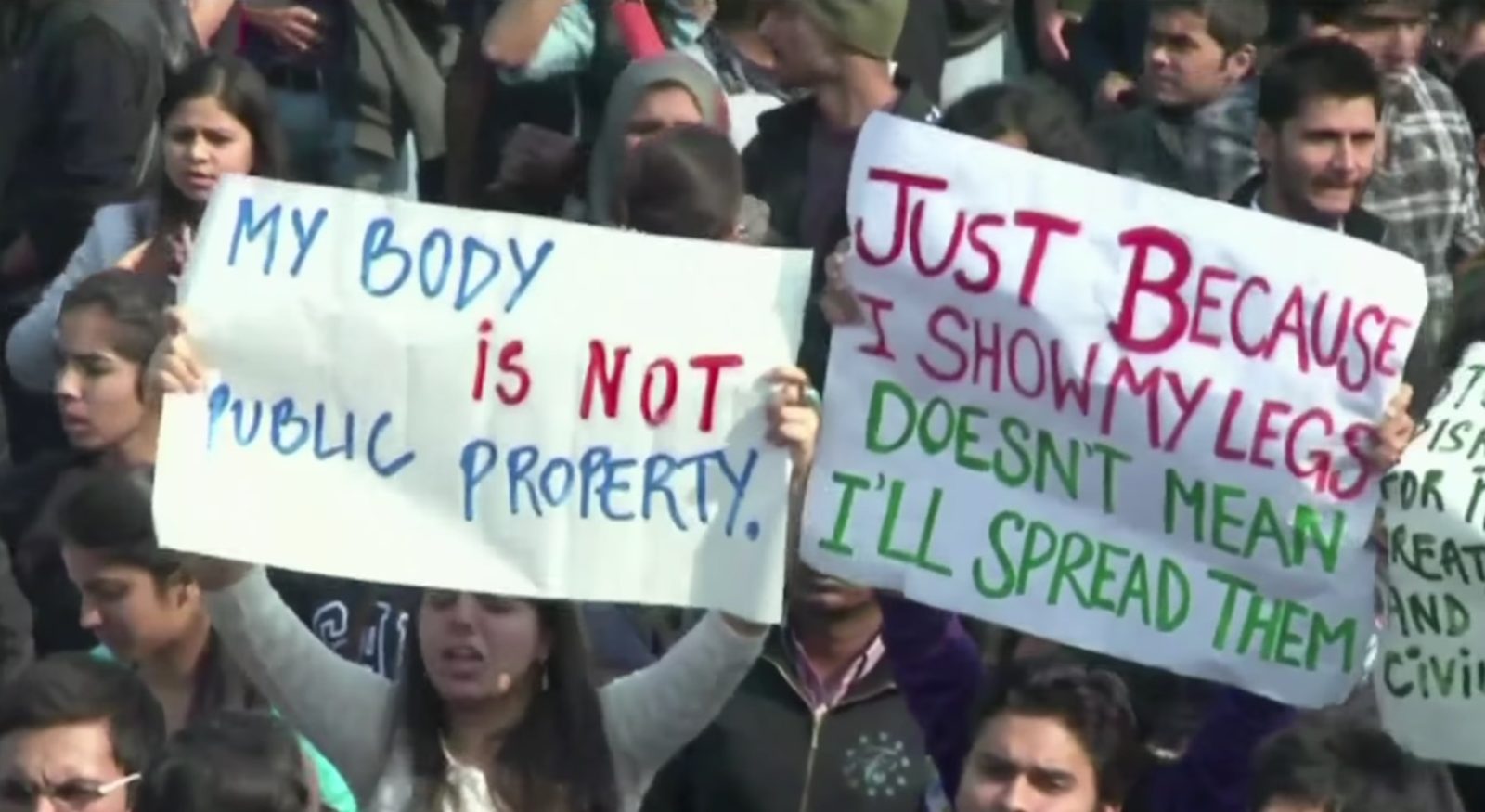
Ring the Bell
One group is trying to harness the power of the media to shift attitudes about violence against women. Its best-known campaign suggests “When you hear domestic abuse, ring the bell.”
SONALI KHAN
That was a very, very simple message. It was a concept to really, if metaphorically looked at, that let’s ring the bell and break the silence. But, very interestingly, people took it literally.

